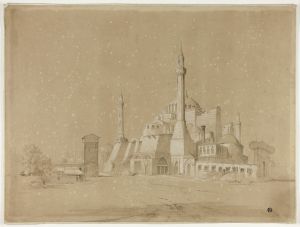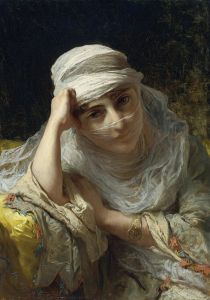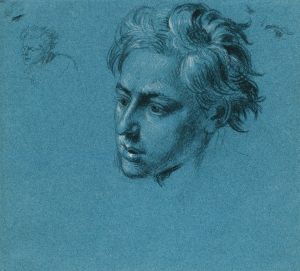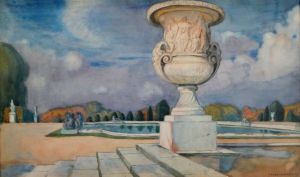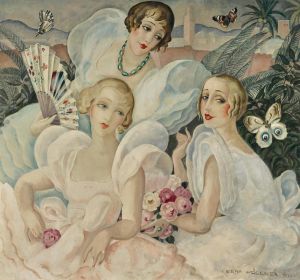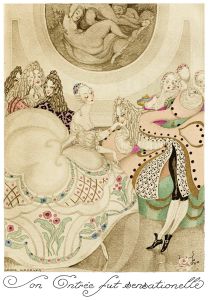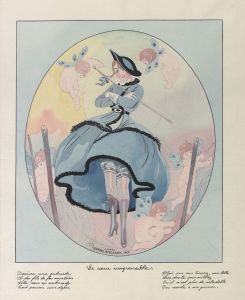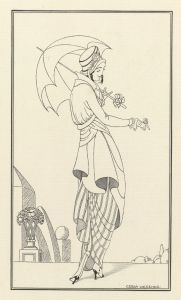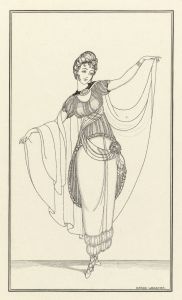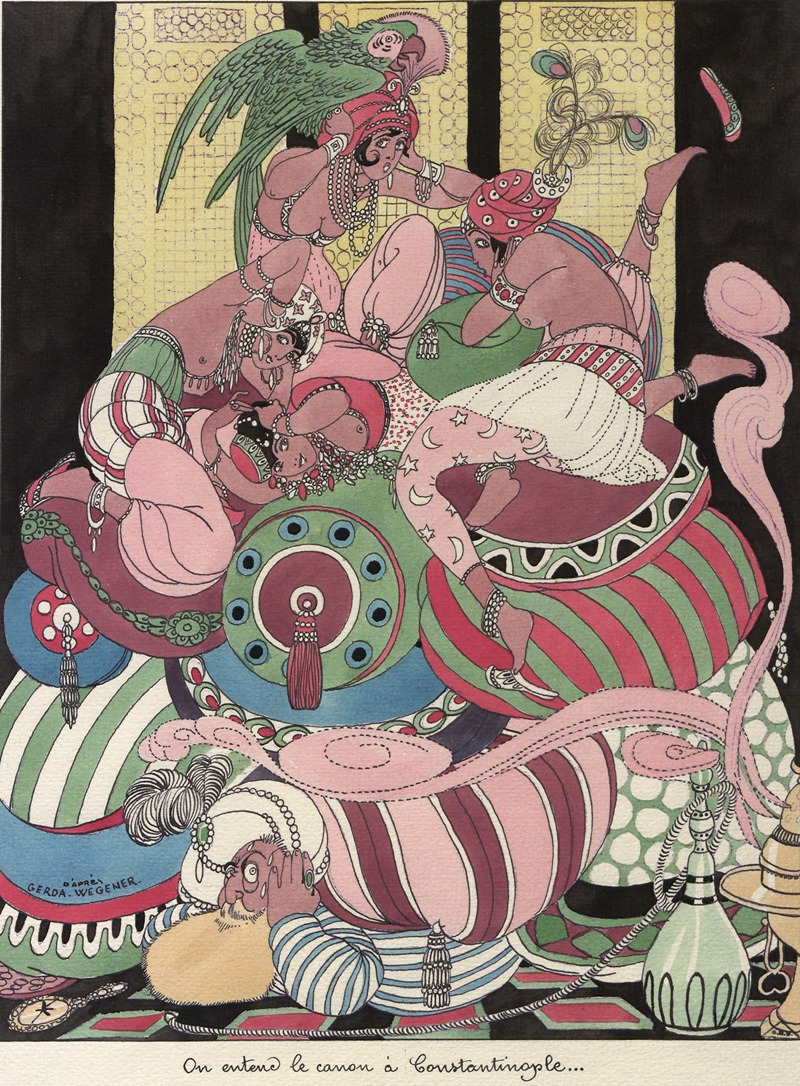
On entend le canon à Constantinople
A hand-painted replica of Gerda Wegener’s masterpiece On entend le canon à Constantinople, meticulously crafted by professional artists to capture the true essence of the original. Each piece is created with museum-quality canvas and rare mineral pigments, carefully painted by experienced artists with delicate brushstrokes and rich, layered colors to perfectly recreate the texture of the original artwork. Unlike machine-printed reproductions, this hand-painted version brings the painting to life, infused with the artist’s emotions and skill in every stroke. Whether for personal collection or home decoration, it instantly elevates the artistic atmosphere of any space.
Gerda Wegener was a Danish artist known for her work in the Art Nouveau and Art Deco styles, as well as for her vibrant and often provocative portraits. She was born on March 15, 1886, in the village of Hammelev, Denmark, and later moved to Copenhagen to study at the Royal Danish Academy of Fine Arts. Wegener is perhaps best known for her relationship with her spouse, Lili Elbe, one of the first known recipients of gender confirmation surgery, and for the way she captured Elbe in her art.
"On entend le canon à Constantinople" is one of Wegener's lesser-known works, and there is limited information available about this specific painting. The title translates to "We Hear the Cannon in Constantinople," suggesting a theme related to war or conflict, possibly referencing historical events involving the city of Constantinople, now Istanbul. However, without more detailed documentation or analysis, it is difficult to ascertain the exact context or inspiration behind this piece.
Wegener's art often featured bold colors, elegant lines, and a focus on the female form, frequently portraying women in a manner that was both sensual and empowered. Her work was celebrated for its technical skill and its ability to capture the essence of her subjects, often blurring the lines between reality and fantasy. This approach is evident in her numerous portraits of Lili Elbe, which remain some of her most famous works.
Throughout her career, Wegener faced both acclaim and controversy. Her art was exhibited in various European cities, including Paris, where she and Elbe moved in 1912. The liberal atmosphere of Paris at the time allowed Wegener more freedom to explore themes of gender and sexuality, which were central to her work. Despite the challenges she faced as a female artist in a male-dominated field, Wegener achieved a degree of success and recognition during her lifetime.
In addition to her paintings, Wegener also worked as an illustrator, contributing to fashion magazines and other publications. Her illustrations often mirrored the same themes found in her paintings, showcasing her distinctive style and her fascination with beauty and identity.
While "On entend le canon à Constantinople" may not be as widely recognized as some of Wegener's other works, it is a testament to her diverse range of interests and her ability to capture complex themes in her art. Unfortunately, due to the scarcity of information on this specific painting, further details about its creation, exhibition history, or critical reception remain elusive.
Gerda Wegener passed away on July 28, 1940, in Frederiksberg, Denmark. Her legacy endures through her art, which continues to be celebrated for its boldness, beauty, and exploration of themes that were ahead of her time. Her life and work have also gained renewed interest in recent years, particularly following the release of the film "The Danish Girl," which dramatized her relationship with Lili Elbe and brought greater attention to both artists' contributions to the art world.







